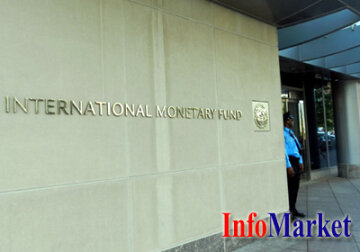
The IMF proposed a Technical Assistance Roadmap (TARM) to support Moldovan authorities’ efforts to strengthen their detection of risks and vulnerabilities and to enhance capacity in financial sector oversight and development.
In particular, the International Monetary Fund published this document, compiled on the basis of a diagnostic review of the financial system of Moldova carried out by the Fund's experts. As noted in IMF- published materials, financial supervision in Moldova has been strengthened by recent reforms, although much remains to be done, especially in the insurance sector, and the planned reorganization of agency responsibilities poses problems. The NBM is close to finalizing a system of prudential regulation and supervision of the banking sector, based on EU standards, which also addresses local vulnerabilities. There is room for further development of oversight, for which additional resources are being made available. The National Commission for the Financial Market (NCFM) has achieved much in stabilizing and developing the regulation of the insurance sector, but further progress in the regulation of insurance depends on the adoption of legislation, its effective implementation and enforcement, as well as an increase in resources. IMF experts believe that, both in banking and in insurance, it is necessary to strengthen cross-border supervision. Regulations have also been developed for savings and credit associations and, in particular, non-bank credit institutions, although again additional resources and increased attention to doing business are required. Fund experts noted that preparations for the transfer of regulatory functions to the NBM in mid-2023 should be accelerated based on tight cooperation between the NBM and the NCFM. IMF representatives point out that the institutional arrangements for ensuring financial stability and regular monitoring of systemic risk are generally in line with the requirements, but solvency and liquidity stress tests need to be revised. There remain several gaps in the macroprudential framework that need to be closed. Systemic risk monitoring tools should also be further developed and the availability of data at the micro level, especially for non-bank lenders, should be further developed to enable them to properly assess household indebtedness. The structure of stress testing needs to be improved. The Fund's experts also stated that the anti-crisis management and financial protection systems have been strengthened, although there are gaps in the rehabilitation of banks and in some other areas. The overall structure has been substantially improved over the last 5 years and efforts have been made by the authorities to improve their ability to deal with future threats. The remaining gaps are related to bank resolutions and other elements of the social safety net, such as increased preparedness of the authorities for crises and inter-agency cooperation, both in protecting depositors and in resolution/liquidation of banks. IMF experts believe that it is necessary to revise parts of the legal framework related to anti-crisis management, especially the institutional mechanisms for bank liquidation and its legal framework. Amendments to the law on resolution and/or secondary legislation are also needed to adapt it to the specifics of the Moldovan banking system, such as the minimum requirement for own funds and eligible liabilities (MREL) requirement, and conditions for access to the Resolution Fund. The IMF materials say that the Moldovan authorities have been working on initiatives to promote different dimensions of financial inclusion, such as financial literacy and payments, but more remains to be done. Financial inclusion has not been addressed by an overarching national strategy, nor is there an inter-agency coordination mechanism. Digital and electronic finance could be further developed as many transactions are still settled in cash. Since Moldova is the most remittance-reliant country in Europe, there is still potential to leverage remittances for provision of other financial products. Financial inclusion in Moldova would benefit from the development of inclusive financial products, such as standard “basic deposit accounts” and microinsurance. Fund experts point out that the legal and regulatory framework for protecting the rights of financial consumers is fragmented, and significant reforms are required for effective protection. Efficient, internal complaint-handling procedures should be in place within financial institutions, and the framework will benefit from the implementation of an independent, out-of-the-court alternative dispute resolution scheme. The IMF experts emphasized that the capital market in Moldova is underdeveloped and not making a sufficient contribution to the financing, risk management and investment needs of the economy. To support capital markets, a capital markets development strategy supported across government and implemented by the NCFM is needed to bolster the capital markets. Efforts should be focused mainly on: strengthening the institutional framework by developing the detailed legal framework for the operation of facultative pension funds and the NCFM’s information gathering and sharing powers in line with international standards; improving regulatory capacity at the NCFM with respect to off-site supervision and on-site inspections of market intermediaries and facultative pension fund administrators; encouraging trading of more financial instruments both directly (such as enabling trading of government securities and municipal bonds on the MSE) and by encouraging collective investment schemes (CIS) to enter the domestic market. // 09.02.2022 – InfoMarket







